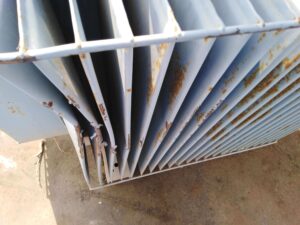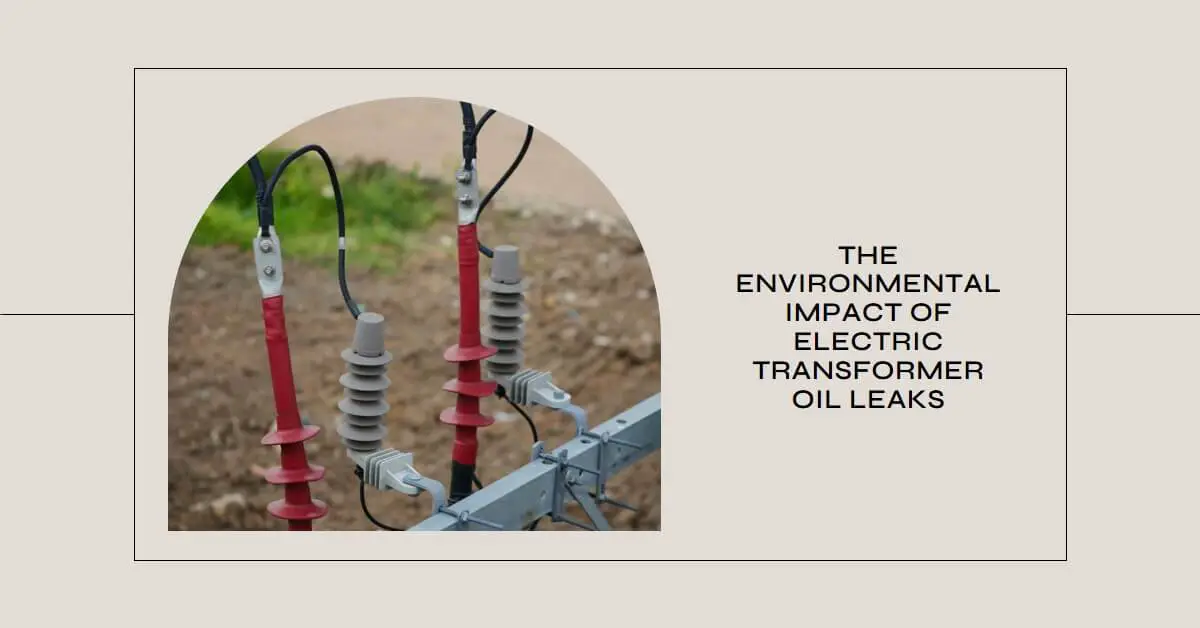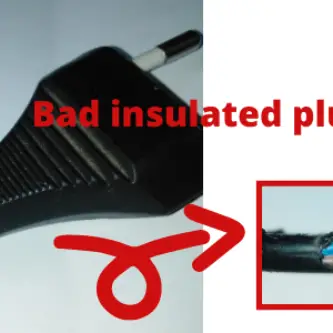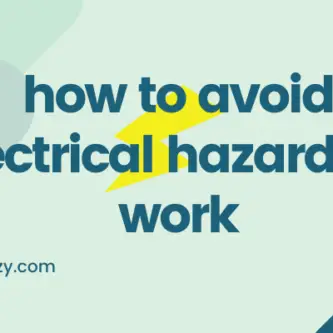Image: “Article Feature Image” by Bing is licensed under CC BY-NC-SA 4.0. Source: Bing Graphic Art. License: CC BY-NC-SA 4.0.
Transformers play a vital role in the electrical power system, facilitating the efficient transmission and distribution of electricity.
These complex machines rely on various components to function properly, including transformer oil, also known as insulating oil.
However, when a transformer experiences oil leakage, it can lead to significant consequences.
When a transformer leaks oil, it can lead to electrical hazards, fire hazards, equipment damage, and environmental pollution.
In this article, we will explore the effects of transformer oil leakage, the potential hazards it poses, and the necessary safety measures to mitigate such incidents.
Understanding Transformer Oil
Transformer oil serves multiple critical functions within the transformer. It acts as both an electrical insulator and a coolant, ensuring the efficient transfer of heat generated during operation.
Additionally, it offers protection against oxidation, suppressing the formation of harmful byproducts.
Transformer oil possesses specific properties that make it ideal for this purpose, such as high dielectric strength and thermal stability.
Causes of Transformer Oil Leakage

There are several reasons why a transformer may experience oil leakage. Age and wear are primary factors, as transformers deteriorate over time due to prolonged use and environmental conditions.
Mechanical failures, such as a broken tank, faulty gasket, or seal, can also lead to oil leakage. External factors, including natural disasters or accidents, can cause physical damage to the transformer, resulting in oil leakage as well.
Read also my comprehensive article: Transformer Oil Loss: The Silent Killer of Electrical Systems.
Signs of Transformer Oil Leakage
Detecting oil leakage is crucial for prompt action. Visual indicators, such as oil stains or puddles around the transformer, can signal a leak.
Environmental impacts, such as dead vegetation or unusual odors, may also be noticeable.
Operational issues, including decreased performance, overheating, or abnormal noise, can be additional signs of oil leakage.
Effects of Transformer Oil Leakage
The consequences of transformer oil leakage can be far-reaching and pose significant risks. Electrical Hazards: Electrical hazards, such as short circuits or insulation failure, may occur due to the loss of insulation provided by the oil.
Fire Hazard: Oil is also flammable, potentially leading to fire hazards and endangering nearby structures. Furthermore, equipment damage can result from prolonged exposure to oil leakage.
Environmental Hazard: Moreover, transformer oil leakage poses a serious threat to the environment, contaminating soil, and water bodies, and affecting ecosystems.
Transformer overheating and burnout: Overheating is indeed one of the consequences of transformer oil leakage.
Transformer oil plays a crucial role in dissipating heat generated during the operation of the transformer.
When oil leaks, the cooling efficiency is compromised, leading to inadequate heat dissipation. This can result in the transformer operating at higher temperatures than designed, causing overheating.
Overheating can further degrade the insulation materials, accelerate equipment wear and tear, and potentially lead to catastrophic failures if not addressed promptly.
Safety Measures and Precautions
Regular inspection and maintenance are essential in preventing and addressing transformer oil leakage.
Inspections should include visual assessments, oil sample analysis, and electrical testing. Prompt detection of leaks, followed by appropriate repairs, is crucial.
In the event of oil leakage, proper containment and cleanup procedures must be implemented to minimize environmental impact and ensure the safety of personnel.
For more in-depth information visit my site “electrical4uonline” and check out this article: Warning Signs of Electrical Transformer Overheating: What to Look Out For.
Emergency Response to Transformer Oil Leakage
In the event of a significant oil leakage incident, certain emergency response measures should be taken.
Evacuation and isolation of the affected area are necessary to protect individuals from potential hazards.
Communication and reporting protocols should be established to notify appropriate authorities.
Professional assistance from specialized personnel or emergency response teams should be sought to handle the situation safely and effectively.
Remediation and Restoration
Addressing transformer oil leakage requires remediation and restoration efforts. This typically involves oil recovery and replacement, along with repairs or replacement of damaged equipment.
Environmental remediation is also necessary to restore affected areas to their pre-incident state. It is crucial to follow proper disposal procedures for contaminated oil and any other hazardous materials.
Preventive Measures for Transformer Oil Leakage
To minimize the risk of transformer oil leakage, preventive measures should be implemented.
Quality control and regular testing of transformer oil are essential to identify potential issues early on.
Using an oil level indicator should help in detecting any oil loss and finding out the cause and repairing the transformer.
Proper installation and design considerations, such as using reliable gaskets and seals, can help prevent leaks.
Protective measures, including the installation of monitoring systems and leak detection devices, can provide early warning signs and facilitate timely intervention.
Conclusion
Transformer oil leakage can have severe consequences, ranging from electrical hazards and equipment damage to environmental pollution and fire hazards.
It is crucial to prioritize regular inspections, prompt detection, and appropriate repairs to prevent and address oil leakage incidents.
By implementing preventive measures and following safety protocols, the risks associated with transformer oil leakage can be mitigated, ensuring a reliable and safe electrical power system for the community.
you work With Electricity! Don’t leave empty-handed!
Looking to stay ahead of the game in the world of electrical engineering? Subscribe to my YouTube channel and gain access to exclusive content you won’t find anywhere else!
The staff I recommend (Amazon Affiliate Links to products I believe are high quality):
- Economy 120 Volt/60Hz AC Power Source – Step-Down Voltage & Frequency Converters 1800W
- UNI-T Digital Multimeter Tester UT139C
- 50-Amp Extension Cord for RV “100ft”
- Voltage Stabilizer 110/220v
- Hair Dryer “best selling“
- TOSHIBA EM131A5C-BS Countertop Microwave Ovens
Disclaimer: This contains affiliate links to Amazon products. I may earn a commission for purchases made through these links.



